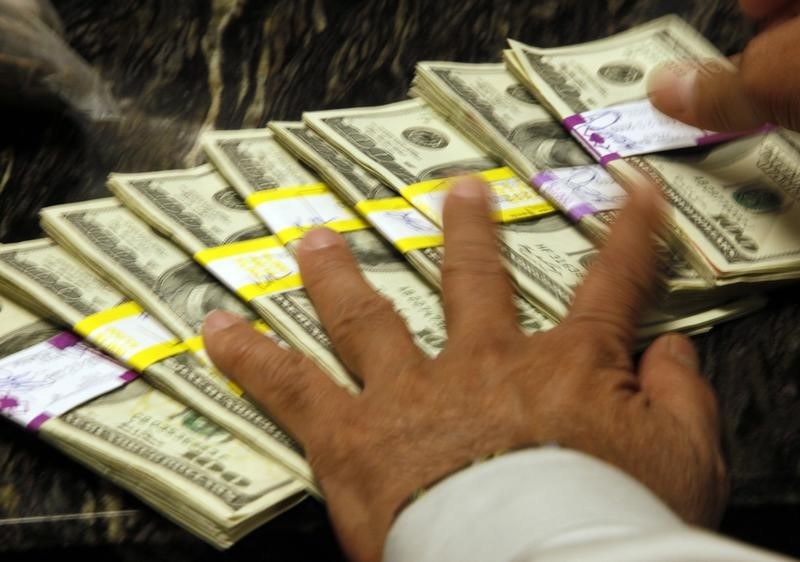Gold prices set for weekly gains on dovish Fed outlook; silver near record high
By David Randall
NEW YORK (Reuters) - As the dollar surged in the last 12 months, David Marcus, head of the Evermore Global Value fund
The gains in those stocks wouldn't matter if the fund wasn't actively hedging against euro weakness, which it is, helping the fund rise 8.8 percent so far in 2015, putting it among the top-performing global stock funds this year.
"We're stockpickers, and by hedging currencies we can be pure stockpickers without the currency risk," said Marcus.
Concerns over currency have prompted a surge of assets to hedged equity funds, with investors moving $12.1 billion (8.09 billion pounds) to exchange-traded funds that hedge currencies over the year to date, according to Lipper data. One such fund, the WisdomTree Hedged European Equity fund, is up 18.9 percent for the year so far.
Demand for a way to hedge currency exposure while investing in Europe helped the WisdomTree Europe Hedged Equity Fund (P:HEDJ) bring in $5.3 billion in new assets over the first two months of the year, the most of any equity fund, according to Lipper.
The fund's top holdings include Anheuser-Busch InBev NV (BR:ABI), Telefonica SA (MC:TEF), and Daimler AG (DE:DAIGn).
Following behind it was the Deutsche X-trackers MSCI EAFE Hedged Equity (P:DBEF), with $2.7 billion in new assets. The fund tracks an index of developed-market equities outside of the United States and Canada, and has its largest positions in Nestle SA (VX:NESN), Novartis AG (VX:NOVN), and Roche Holding AG (VX:ROG).
The dollar's rally looks to be eating into the returns of actively managed funds, fund analysts say. While major stock indexes in Japan, Germany, and France are up 11 percent or more in local currency for the year to date, the average global fund is up just 2.6 percent in dollar terms over the same time, according to Lipper data.
Investors have few ways of knowing whether a global fund hedges its currency exposure. Lipper has no way of tracking it, said Jeff Tjornehoj, head of Lipper Americas Research, a unit of Thomson Reuters. Morningstar (O:MORN), another fund tracking service, does not track currency hedges either, according to a spokeswoman.
Fund returns this year suggest most global funds do not hedge against currency risk, even though most are allowed to do so. The difficulty of getting such a move correct keeps managers from actively hedging.
"When you hedge a currency you have to be right twice. You have to be right about the market, and right about the currency. I'm not sure that's something one can do on an ongoing basis," said John Manley, chief equity strategist at Wells Fargo Funds (N:WFC).
The track record of the Evermore Fund shows the difficulty with timing on currencies: Over the last three years, the fund has posted an average annual return of 9.2 percent a year, trailing 75 percent of its peers, according to Morningstar data.
This year, the Evermore Global has benefited from significant gains in companies such as Belgian construction firm CFE SA (BR:CFEB), French conglomerate Bollore SA (PA:BOLL) and Italian engineering firm Maire Tecnimont SpA (MI:MTCM).
Marcus has been pulling back from investing in U.S. companies that get a significant portion of their revenues in Europe.
Lately, he has been adding to positions in companies such as German materials company ThyssenKrupp AG (DE:TKAG), best known for making elevators. The cheaper euro will likely boost its exports, while lower energy costs will amount to "found money," he said.
